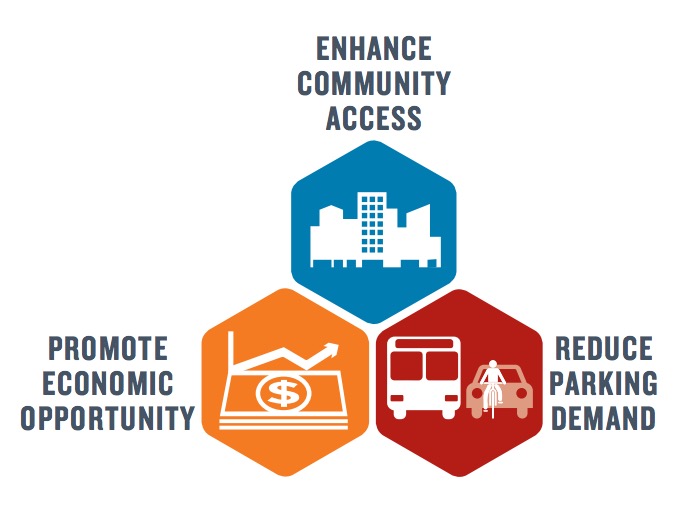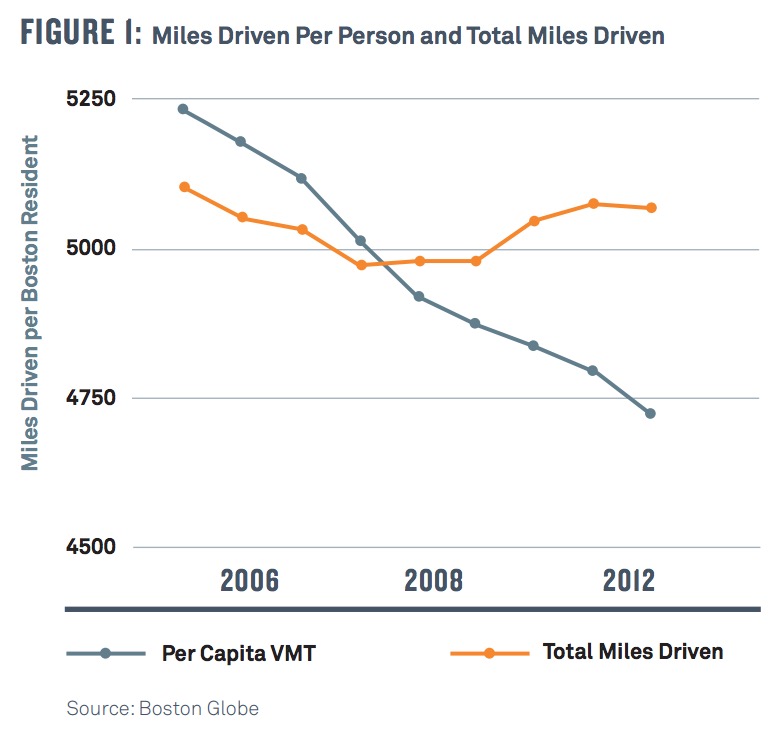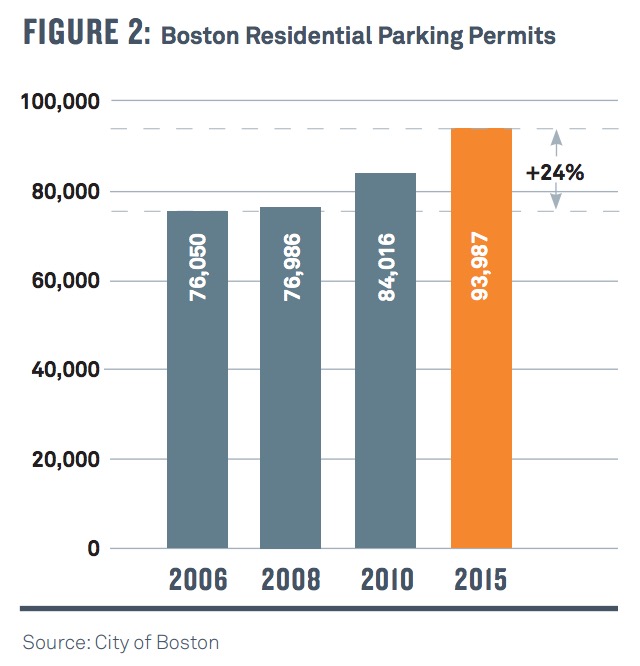A BETTER CITY
The Future of Parking in Boston: Addressing the need to promote economic opportunity, enhance community access, and reduce parking demand
 This report, prepared by Nelson\Nygaard Consulting Associates Inc., is intended to serve as a guide for the city’s neighborhoods and policymakers and includes strategies based on nationwide best practices that:
This report, prepared by Nelson\Nygaard Consulting Associates Inc., is intended to serve as a guide for the city’s neighborhoods and policymakers and includes strategies based on nationwide best practices that:
- Reduce parking demand by promoting walking, bicycling, and public transportation.
- Increase the accessibility and efficiency of parking through innovative signage and marketing.
- Minimize congestion and infrastructure wear-and-tear generated by truck parking, loading, and unloading.
- Support zoning amendments that promote public transportation use, shared parking strategies, non-motorized travel, and reduced parking demand.
- Improve efficiency in parking facility usage, cost, space-availability, and revenue collection through the use of new technologies.
The recommendations of this report are structured around three primary City policies:
- Enhance community access
- Promote economic opportunity
- Reduce parking demand
These policies are supported by multiple strategies and organized around several initiatives. The six key initiatives are to:
- Support Small Businesses
- Increase Housing Affordability
- Improve Residential Neighborhoods
- Expand Demand Reduction Programs
- Enhance Tools for Management
- Provide Equitable Transportation Funding
Why Is This Important?
Parking policy affects the livelihood of Bostonians, the success of businesses, and the health of our environment. Today, Boston’s parking policies are not aligning well with the needs that parking is intended to serve.
Parking is Not Serving Residents Well
Even though automobile ownership and the amount of cars registered in Boston have been plummeting, the demand for on-street parking and resident parking permits is growing. The private market has reacted well to market demand, but continued free or cheap public on-street parking policies have streets flooded,forcing residents to make difficult decisions and compromising them when any adversity arises, such as the winter of 2014–2015.
 Parking is About Economic Development
Parking is About Economic Development
While downtown has seen parking construction decline relative to current development,the rest of the city is subject to antiquated zoning requirements that create too much parking and drive up the cost of development—especially the cost of housing. Meanwhile, out-of-date parking policies and curbside management practices in business districts are hurting merchants, preventing customers from finding available parking, and not encouraging them to travel by other modes.
Government is Not Making Parking Easy
Parking policies and management are currently governed by no less than a dozen different agencies without a coordinated policy, parking functions in a confused manner:
- The Boston Environment Department (BED) controls commercial parking growth.
- The Boston Transportation Department (BTD) regulates parking supply and enforces on-street parking.
- The Boston Fire Department (BFD) requires annual licensure for garages.
- The Inspectional Services Department (ISD) requires parking according to antiquated regulations.
- The Economic Development Industrial Corporations (EDIC) builds new parking supply in lieu of other modes.
- The City Council effectively limits rate changes.
- Historically, State law limits the utility of parking revenues.
 Parking Policies in Boston Are Out of Date
Parking Policies in Boston Are Out of Date
- Resident permits are divorced from supply, with many Bostonians forced to seek expensive off-street alternatives.
- Current meters and time-limited parking do not produce enough front-door access for business to reach their customers, who wind up paying high garage rates,risking a ticket, or simply leaving the city for goods and services.
- The disparity between on-street and offstreet prices and enforcement fines encourages high demand for the limited amount of on-street parking.
- Efforts to freeze commuter parking have not been matched with limits on private parking nor sufficient incentives to promote transit and other alternatives.
Why Now?
Boston is experiencing increasing development and population at a time when interest in a comprehensive multimodal transportation approach to travel is at an all-time high. Parking use provision management and cost are central to transportation policy and individual travel choices. Citywide and neighborhood efforts like the Go Boston 2030 Mobility Action Plan,the Greenovate Boston 2014 Climate Action Plan Update, and the South Boston Waterfront Sustainable Transportation Plan all recognize the centrality of parking and its outside role in the transportation system. In order to make citywide transportation and parking options more equitable, improve Bostonians’ quality of life, and acknowledge the tremendous popularity and cost savings of walking, biking,transit, and shared transportation, it is clear that some current parking policies work against these goals and must be changed.
Download full version (PDF): Future of Parking in Boston
About A Better City
http://www.abettercity.org/
A Better City is a diverse group of business leaders united around a common goal — to enhance Boston and the region’s economic health, competitiveness, vibrancy, sustainability and quality of life…By amplifying the voice of the business community through collaboration and consensus across a broad range of stakeholders, A Better City develops solutions and influences policy in three critical areas central to the Boston region’s economic competitiveness and growth — transportation and infrastructure, land use and development, and environment and energy.
Tags: A Better City, Boston, MA, Massachusetts, Nelson\Nygaard, Parking






 RSS Feed
RSS Feed